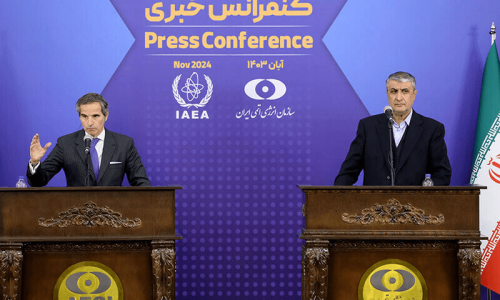SAN DIEGO: US soldiers and Marines caught in roadside bombings and firefights in Iraq and Afghanistan are coming home in epidemic numbers with permanent hearing loss and ringing in their ears, prompting the military to redouble its efforts to protect the troops from noise.
Hearing damage is the Number 1 disability in the fight against terror, according to the Department of Veterans Affairs, and some experts say the true toll could take decades to become clear. Nearly 70,000 of the more than 1.3 million troops who have served in the two war zones are collecting disability for tinnitus, a potentially debilitating ringing in the ears, and more than 58,000 are on disability for hearing loss, the VA said.
“The numbers are staggering,” said Theresa Schulz, a former audiologist with the Air Force, past president of the National Hearing Conservation Association and author of a 2004 report titled “Troops Return With Alarming Rates of Hearing Loss.” One major explanation given is the insurgency’s use of a fearsome weapon the Pentagon did not fully anticipate: powerful roadside bombs. Their blasts cause violent changes in air pressure that can rupture the eardrum and break bones inside the ear.
Also, much of the fighting consists of ambushes, bombings and firefights, which come suddenly and unexpectedly, giving soldiers no time to use their military-issued hearing protection.
“They can’t say, ‘Wait a minute, let me put my earplugs in,’” said Dr Michael E. Hoffer, a Navy captain and one of the country’s leading inner-ear specialists. “They are in the fight of their lives.”
In addition, some servicemen on patrol refuse to wear earplugs for fear of dulling their senses and missing sounds that can make the difference between life and death, Hoffer and others said. Others were not given earplugs or did not take them along when they were sent into the war zone. And some Marines were not told how to use their specialised earplugs and inserted them incorrectly.
Hearing damage has been a battlefield risk ever since the introduction of explosives and artillery, and the US military recognised it in Iraq and Afghanistan and issued earplugs early on. But the sheer number of injuries and their nature — particularly the high incidence of tinnitus — came as a surprise to military medical specialists and outside experts.
The military has responded over the past three years with better and easier-to-use earplugs, greater efforts to educate troops about protecting their hearing, and more testing in the war zone to detect ear injuries.
The results are not in yet on the new measures, but Army officials believe they will significantly slow the rate of new cases of hearing damage, said Colonel Kathy Gates, the Army surgeon general’s audiology adviser.
Considerable damage has already been done.
For former Staff Sgt Ryan Kelly, 27, of Austin, Texas, the noise of war is still with him more than four years after the simultaneous explosion of three roadside bombs near Baghdad.
“It’s funny, you know. When it happened, I didn’t feel my leg gone. What I remember was my ears ringing,” said Kelly, whose leg was blown off below the knee in 2003. Today, his leg has been replaced with a prosthetic, but his ears are still ringing.“It is constantly there,” he said. “It constantly reminds me of getting hit. I don’t want to sit here and think about getting blown up all the time. But that’s what it does.”
Sixty per cent of US personnel exposed to blasts suffer from permanent hearing loss, and 49 per cent also suffer from tinnitus, according to military audiology reports.—AP














































Dear visitor, the comments section is undergoing an overhaul and will return soon.